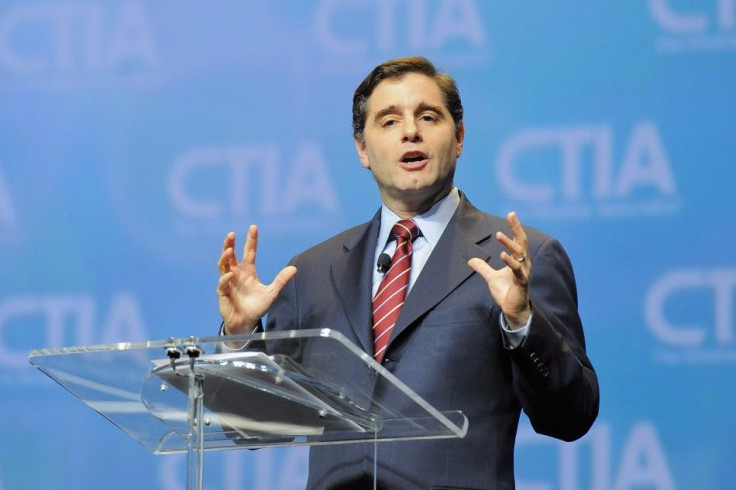FCC Chairman Wants More Spectrum For Wireless Cos.

Federal Communications Commission Chairman Julius Genachowski has called for expanding the spectrum available to wireless communications companies, in order to support the growth of mobile data services. But not everyone agrees that a spectrum crisis is looming.
At the International Cellular Telephone Industry Association Wireless conference, Genachowski said a tablet uses 20 times more spectrum than a typical cell phone, and that even with the three-fold increase in spectrum available in just the last few years, it won't be enough to keep up with demand. Expanding the bandwidth available for wireless services is necesasary, even though it isn't the only way to address the issue.
Spectrum is important because to carry more information, a radio signal has to either be at a higher frequency, or be spread over a wider range of frequencies (known as the bandwidth). AM radio signals, for example, carry only sound and operate at frequencies of thousands of cycles per second, or kilohertz. Most cell phone signals range from about 900 megahertz (MHz) to 1800 MHz, and WiMax, which carries data, operates at 2.3 to 3.5 gigahertz (GHz).
Genachowski also said the FCC is working to free up white spaces - unlicensed spectrum that can be used by Wi-Fi devices, and to set up a voluntary auction system, which he said could net the government $30 billion.
Genachowski acknowledged that freeing up spectrum by itself wasn't going to solve the problem. He also said the FCC wants to encourage using technologies such as femtocells and dynamic spectrum sharing.
But not all are convinced a problem is imminent, especially in light of the merger between AT&T and T-Mobile USA. A public interest group, Free Press, has said the shortage of spectrum isn't necessarily a problem for big wireless operators. It's not a crisis for AT&T and Verizon, said Derek Turner, Free Press' research director. It's a crisis for their smaller competitors.
Turner notes that in the breakup fee agreement between AT&T and T-Mobile is a provision to give T-Mobile some spectrum that AT&T isn't using. We're not opposed to the idea of freeing more spectrum, Turner said. But I'm wary of when the word 'crisis' gets thrown around.
National Association of Broadcasters' executive vice president Dennis Wharton said the problem of spectrum is limited to the largest cities, where the data networks of providers such as AT&T can get overloaded. He added that improving the efficiency of bandwidth use can be done through better receivers, which makes auctioning off more spectrum les necessary.
Television broadcasters were asked to give up 100 megahertz of bandwidth when the FCC auctioned off the 700 MHz band in 2008. Wharton said the NAB wants to see a comprehensive inventory of the available spectrum in the country before more auctions are undertaken.
© Copyright IBTimes 2024. All rights reserved.











